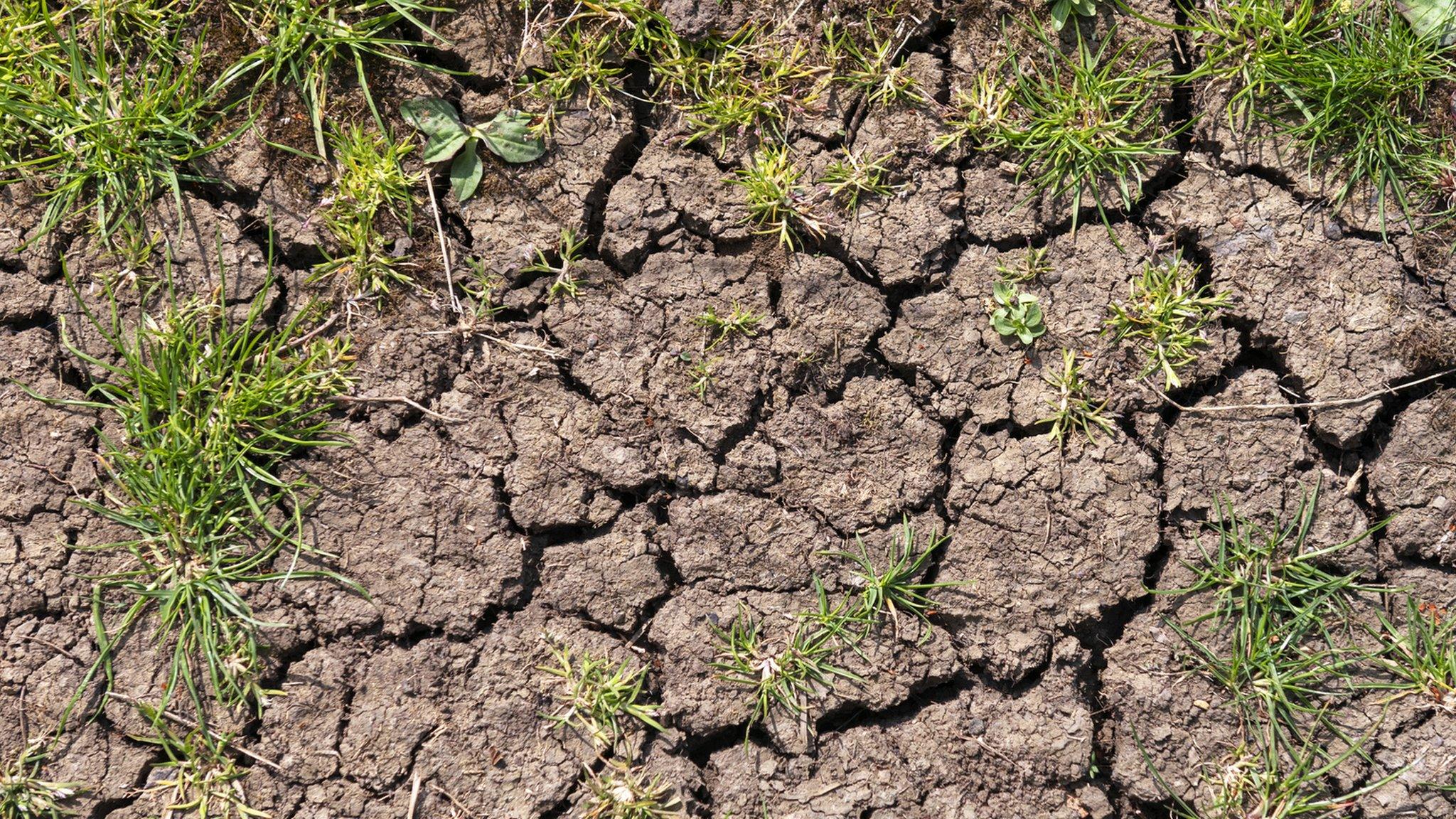Suffolk water shortage may 'throttle back' firms' growth
- Published
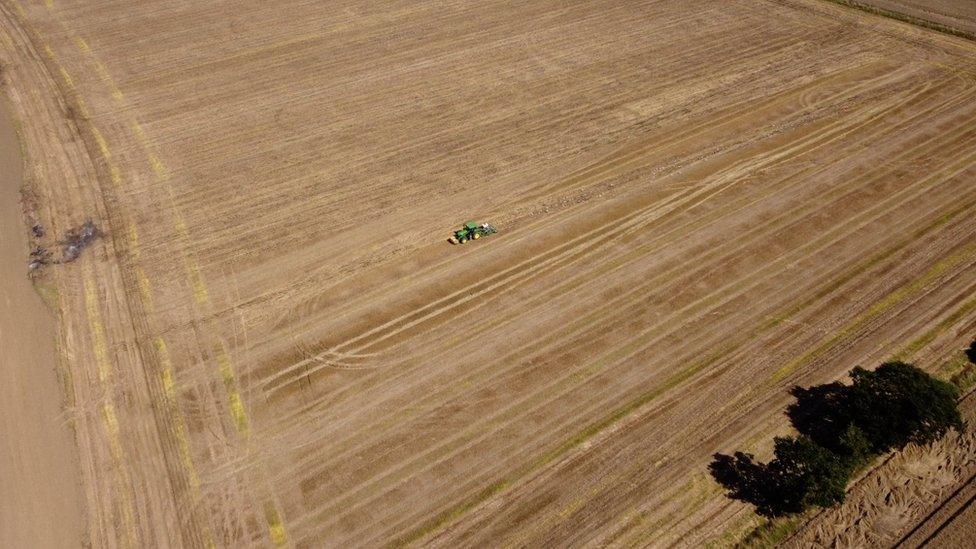
This field is earmarked for a large reservoir to collect rainwater to supply chicken sheds
A water shortage in an area of Suffolk has led to some firms being refused permission to set up or told they could not expand, the BBC has learned.
The policy by Essex & Suffolk Water (ESW) has affected those using large volumes of water like manufacturers, farmers and food processors.
A leading councillor said they could be "throttled back" from expanding.
ESW said there was enough water for current needs and new housing, but not for business growth.
The company's policy, which has been in place for about 12 months, has affected an area around the town of Eye in Suffolk, known as the Hartismere Water Resource Zone.
It has been put in place until 2032, when new water supply schemes in Hartismere should be operational.

'Stark consequence'
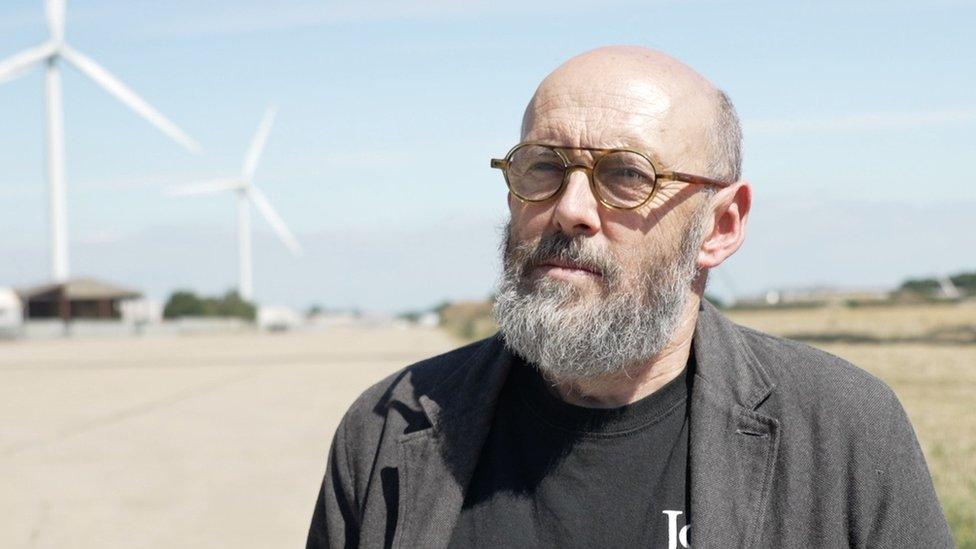
Andrew Stringer, at Mid Suffolk District Council, said the situation was "scary" but "no surprise"
Andrew Stringer, the senior councillor who oversees planning in Mid Suffolk, said the policy was "quite scary" but "no surprise at all".
"We have for decades been choosing economic growth above the needs and resources of our planet and this is a stark – very stark – consequence of that," said Mr Stringer, Green Party.
"You simply cannot continually economically grow beyond the ability of our planet to sustain."
Mr Stringer said the policy could "throttle back a lot of businesses that want to expand". He added Mid Suffolk was "absolutely not closed for business" but was "open for sustainable business".
"It's worrying, of course, because you want businesses to thrive, but equally it's a chance for us to re-look at the policies and make sure we do take water use deadly seriously."

'Big shock'
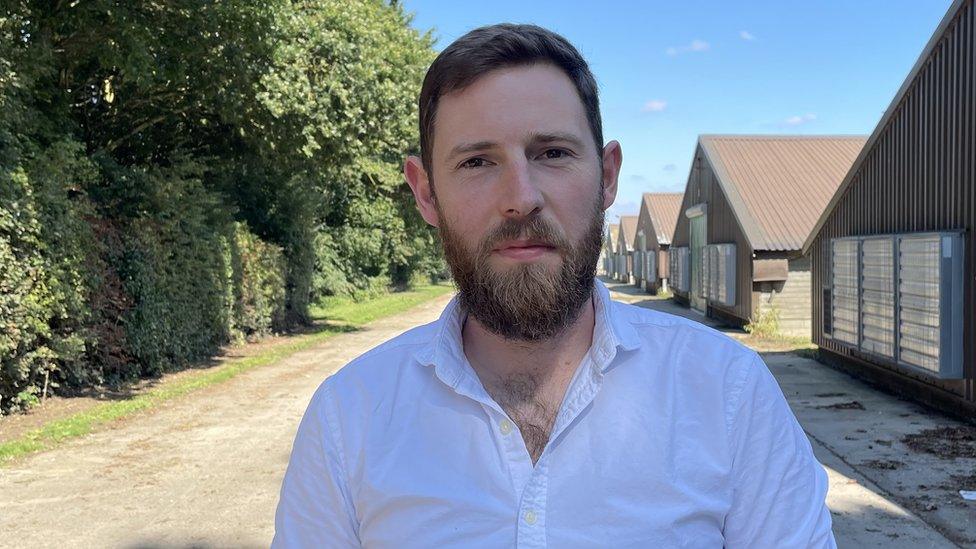
It was "painful" to hear his farm could not use mains water for new chicken sheds, said Charlie Davidson
Charlie Davidson, co-owner of agricultural building firm C E Davidson, said it was "painful" when ESW objected to an application to build six new chicken sheds on his farm, about 10 miles (16km) from Eye.
His firm had planned to use mains water in the new sheds from an existing connection.
Mr Davidson, 37, said: "To be told that we can't use our existing main to its full capacity was a big shock to us."
ESW told Mid Suffolk Council its objection would stay until the company had an approved plan to make the new sheds "water neutral".
A 16 million litre (3.5 million gallon) reservoir has now been planned for a nearby crop field, which would collect rainwater captured from buildings on the farm.
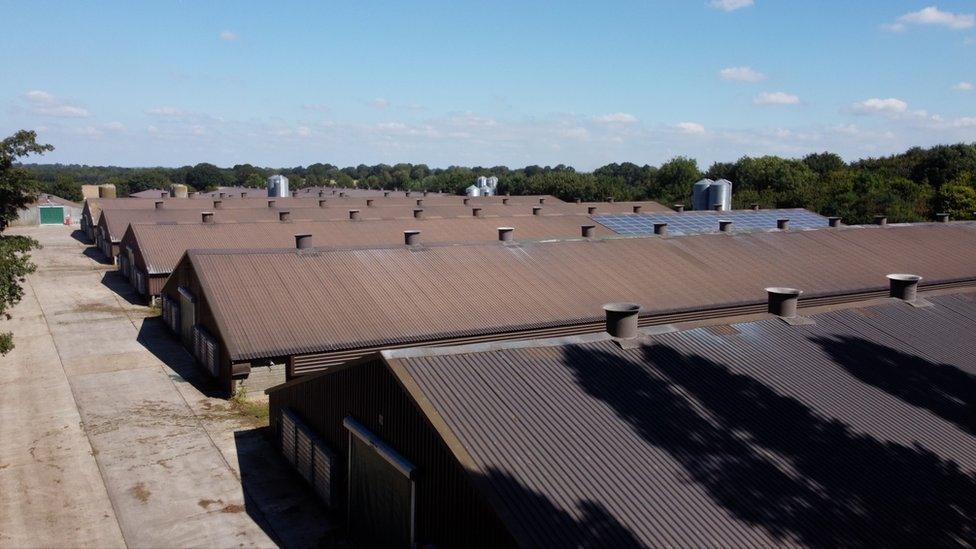
Essex & Suffolk Water objected to plans for six new chicken sheds unless they came with their own water supply
Mr Davidson said his company was "not unhappy at putting rainwater harvesting in", but added that "not everyone has the facility of an arable farm right next door".
"We're effectively saying to anyone, 'Unless you're tied to this area already, it's going to cost you more money to produce a chicken, a pig or whatever it might be.'
"And why would you do that? Why would you invest in the Mid Suffolk area when you can go somewhere else?"
Mr Davidson said the objection from ESW had caused months of delay and cost his company financially.
If similar "burdens" were put on other applications, he added, "it's going to be very hard to see that Mid Suffolk is going to be the place that people will choose to move [to] or expand their business".
The ban on new business connections in the Hartismere zone applied to firms that used water for manufacturing, processing, irrigation, livestock and consumptive water cooling, according to an ESW document.
The northern boundary of the zone runs along the River Waveney, from its source in the village of Redgrave. It stretches as far east as Metfield and is about 15.5 miles (25 km) wide at its widest.
The biggest settlement is Eye on the River Dove, which flows into the Waveney. It also includes Rickinghall and Wyverstone Street in the west, and runs as far south as Mendlesham Green.


'Exceptionally bad'
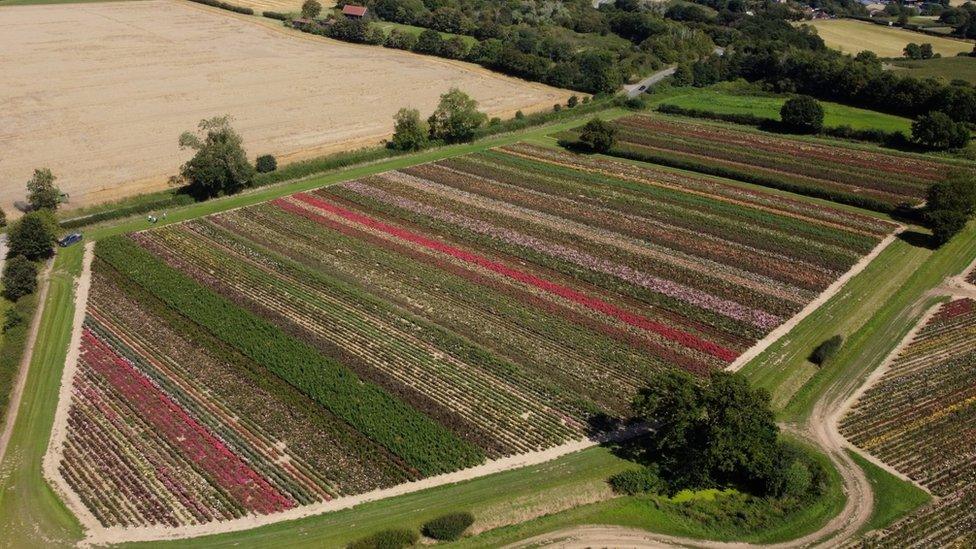
Whartons Garden Roses said it had to irrigate its plants more frequently because of drier weather
Paul Wharton, who runs Whartons Garden Roses just north of the River Waveney in Norfolk, has also been planning a new reservoir after experiencing drier summers.
His farm, which has three million roses in the ground, does not use mains water but bore holes and rainwater harvesting to irrigate plants.
It is just outside Hartismere, though some fear similar policies could be brought in elsewhere.
"We used to have a rule of thumb 10 years ago that we would irrigate one in every three years," he said.
"For about the past five or six years we have been irrigating every year. Last year was exceptionally bad – we did have to do quite a bit of irrigating and it's very time-consuming, very expensive, and we have to obviously keep to our limits set by the Environment Agency."
The new 24 million litre (5.3 million gallon) reservoir would be filled by collecting surface run-off in winter.
Mr Wharton, 40, said it would be an "insurance" for the company "to give us the confidence to keep on growing".
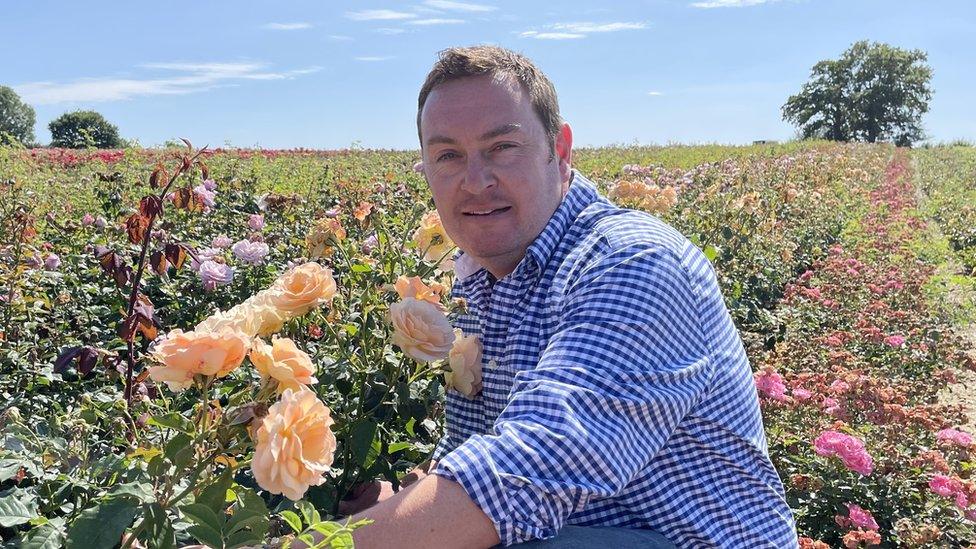
Paul Wharton has also been planning to build a new reservoir as an "insurance" against drier weather
ESW relies on underground sources of water to supply homes and businesses. In a letter objecting to a proposed development in Hartismere, it said the Environment Agency had cut the amount of groundwater it was allowed to pump.
Its water director, Kieran Ingram, said in a statement the Hartismere policy was "a measure we have taken to protect the water supplies of families and communities in our region", which he described as "one of the driest and most water-stressed areas in the country".
"With this in mind, we have been unable to agree to some requests for large-scale new usage – such as factories that may need large amounts of water for production," he added.
"We understand the importance of future commercial growth. We are due to publish plans later this year that include significant investment in the water resources in the area, which will help secure supplies to our whole Suffolk region for many years into the future."

Find BBC News: East of England on Facebook, external and Instagram, external. If you have a story suggestion email eastofenglandnews@bbc.co.ukor get in touch via WhatsApp on 0800 169 1830
- Published26 June 2023
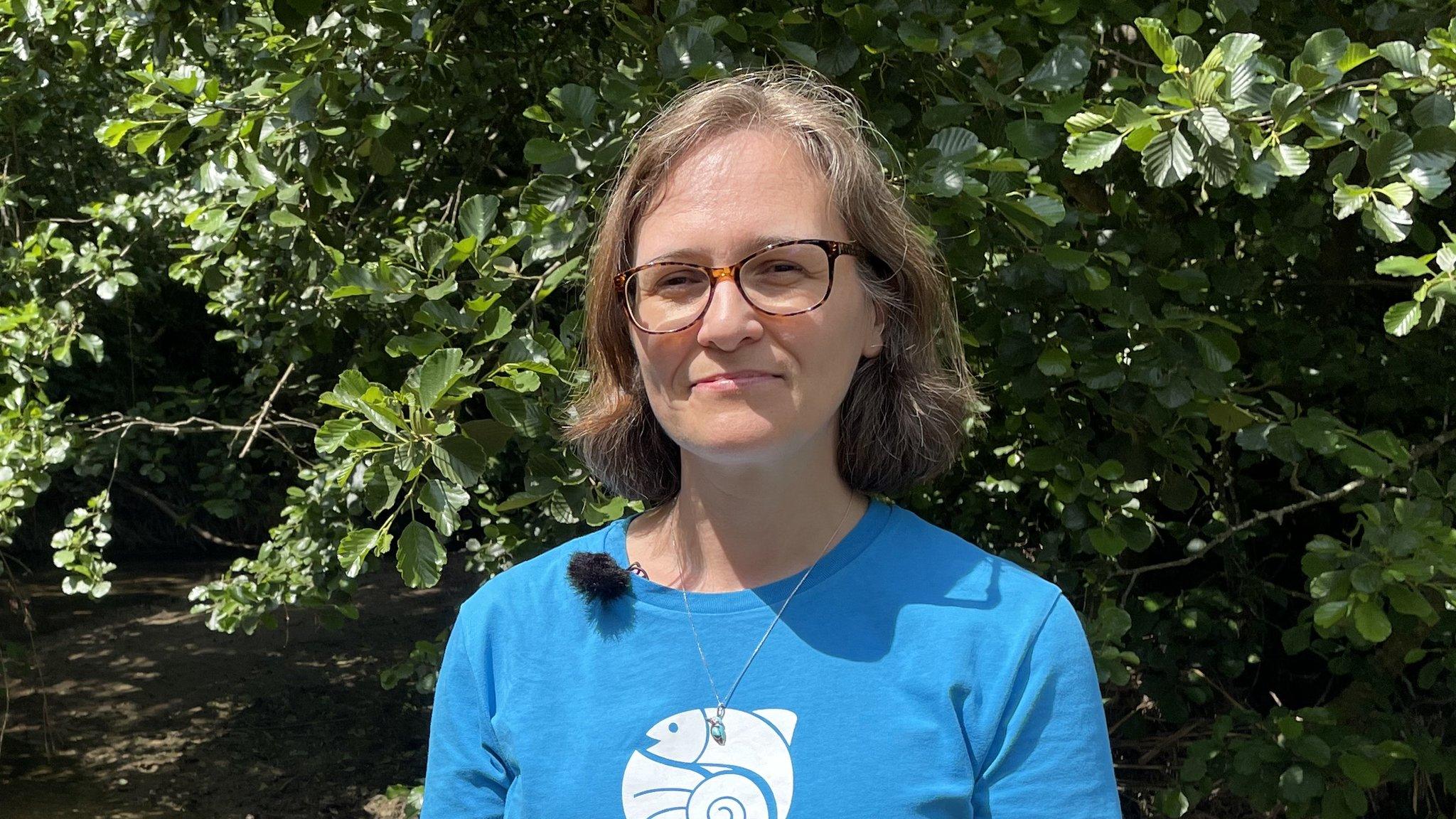
- Published30 June 2023
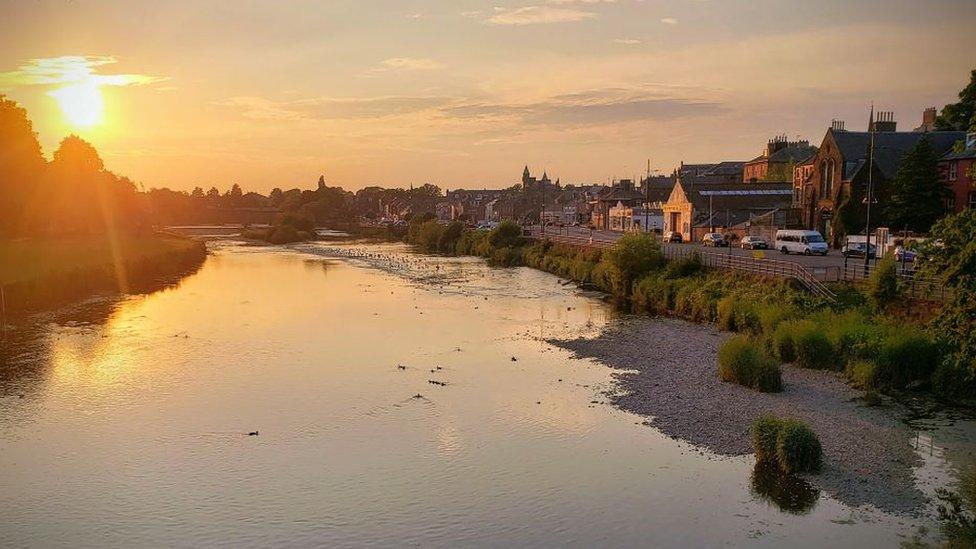
- Published24 June 2023
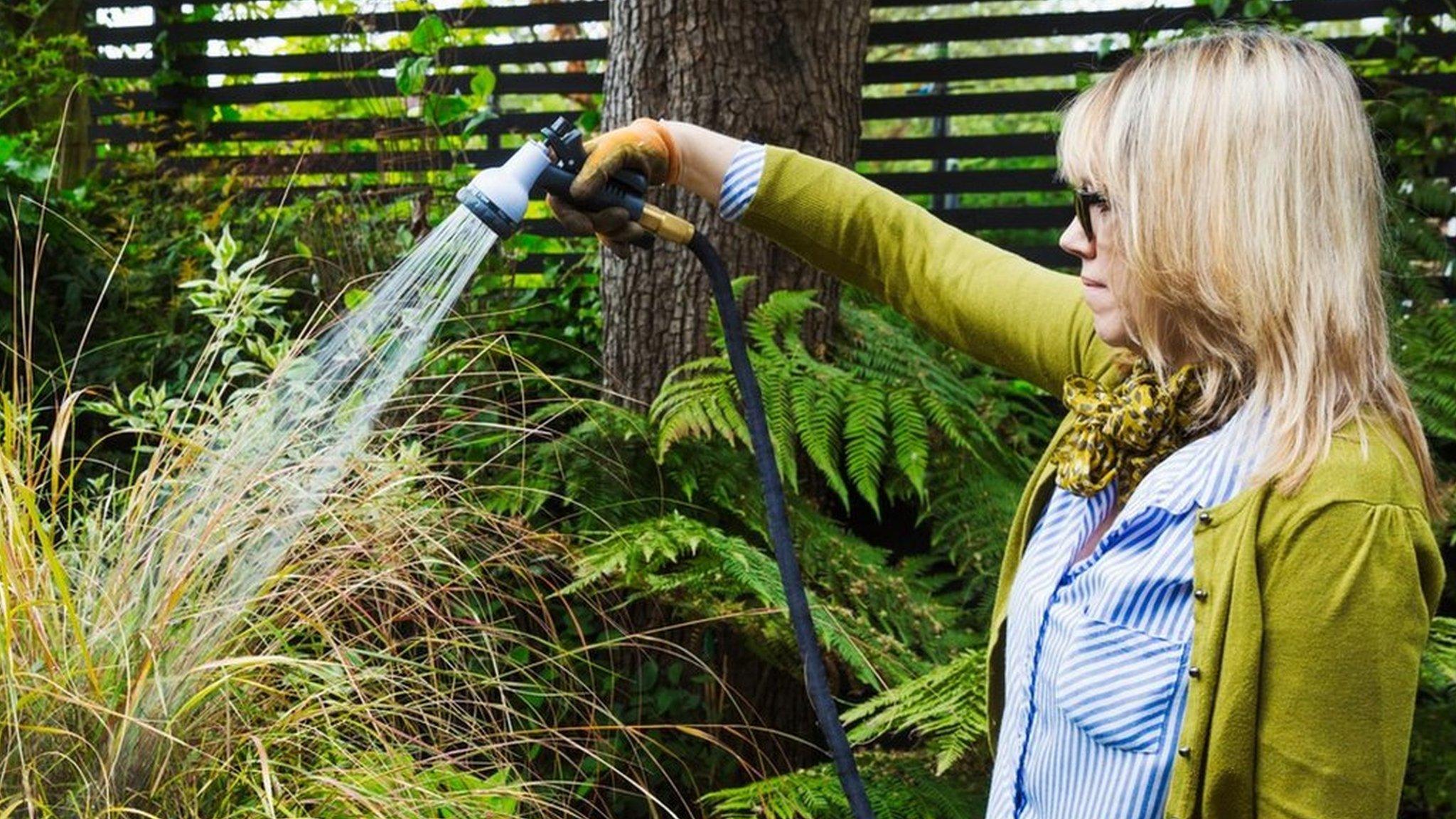
- Published18 January 2023
- Published18 July 2022
